February 25 stands as one of history’s most eventful days, witnessing the rise and fall of empires, groundbreaking discoveries, and moments that shaped our modern world across centuries of human achievement.

Politics and Government Events on February 25
1912 – Marie-Adélaïde Becomes First Reigning Grand Duchess of Luxembourg

Marie-Adélaïde ascended to the throne as Luxembourg’s first female sovereign ruler after her father Guillaume IV’s death. The eldest of six daughters, she broke centuries of male-only succession in the small European duchy.
Her reign would prove tumultuous as World War I engulfed Europe shortly after her coronation. The young duchess faced unprecedented challenges navigating Luxembourg’s neutrality during the Great War.
1947 – Allied Powers Formally Abolish Prussia
The Allied Control Council officially dissolved the Kingdom of Prussia, ending centuries of German militaristic tradition. This decisive action eliminated the political entity that had dominated Central European politics since the 18th century.
The abolition represented a symbolic victory over German authoritarianism and militarism. Allied leaders believed removing Prussia would prevent future German aggression and promote democratic values.
1986 – People Power Revolution Topples Marcos in Philippines

Ferdinand Marcos fled the Philippines after 20 years of authoritarian rule as millions of citizens demanded his removal. Corazon Aquino became the nation’s first female president following the peaceful revolution.
The bloodless uprising inspired democratic movements worldwide and demonstrated the power of nonviolent resistance. International observers praised the Filipino people’s commitment to restoring constitutional government.
1991 – Warsaw Pact Officially Disbanded
Communist bloc nations formally dissolved their military alliance during a historic meeting in Budapest. The Warsaw Pact’s termination marked the definitive end of the Cold War’s bipolar world order.
Former Soviet satellite states embraced their newfound independence and began transitioning toward democratic governance. The disbandment paved the way for NATO expansion and European integration.
1948 – Communist Coup Seizes Control of Czechoslovakia
Klement Gottwald led the Communist Party to power in Prague, effectively ending the Third Czechoslovak Republic. The bloodless coup eliminated the last democratic government in Eastern Europe’s Soviet sphere.
Western leaders condemned the takeover as Soviet expansionism threatening European stability. The event accelerated American commitment to containing communist influence through the Marshall Plan.
1956 – Khrushchev Denounces Stalin in Secret Speech
Soviet leader Nikita Khrushchev delivered his famous “Secret Speech” condemning Stalin’s cult of personality and brutal policies. The three-hour address shocked party delegates and marked the beginning of de-Stalinization.
Khrushchev’s revelations about Stalin’s purges and paranoia sent shockwaves throughout the communist world. The speech initiated political reforms and rehabilitation of Stalin’s victims across the Soviet Union.
1947 – Soviets Abduct Hungarian Opposition Leader
NKVD forces kidnapped Béla Kovács, secretary-general of Hungary’s Independent Smallholders’ Party, defying parliamentary immunity. His deportation to the USSR marked a crucial turning point in Hungary’s communist takeover.
The brazen abduction eliminated the last major obstacle to complete Soviet control over Hungarian politics. Western powers protested the violation of international law but remained powerless to intervene.
1980 – Military Coup Overthrows Suriname Government
Colonel Dési Bouterse led a military revolution that toppled Suriname’s democratically elected government. The coup brought an end to the South American nation’s brief experiment with parliamentary democracy.
Bouterse’s regime would rule Suriname for decades, implementing socialist policies and maintaining close ties with Cuba. The takeover reflected broader regional instability during the Cold War era.
Military and Naval History on February 25
1916 – Germans Capture Fort Douaumont Without Fight
German forces seized Fort Douaumont, the cornerstone of French defenses at Verdun, encountering virtually no resistance. The massive fortress fell due to French complacency and inadequate garrison strength.
The unexpected victory provided Germany with a crucial strategic advantage in the Battle of Verdun. French commanders scrambled to organize counterattacks to reclaim their most important defensive position.
1918 – German Forces Complete Estonian Occupation
German troops captured Tallinn, effectively completing their occupation of Estonia during World War I. The Baltic nation fell under German military administration as part of the eastern front campaign.
Estonian independence movements went underground as German authorities established martial law throughout the territory. The occupation would prove temporary as Germany’s military position collapsed later that year.
1933 – USS Ranger Launched as Purpose-Built Aircraft Carrier
The United States Navy commissioned its first purpose-built aircraft carrier at Newport News, Virginia. USS Ranger represented a revolutionary advancement in naval aviation and power projection capabilities.
The vessel’s innovative design incorporated lessons learned from converted carriers and foreign naval developments. Ranger’s commissioning marked America’s commitment to naval aviation as a primary strategic weapon.
1921 – Russian Forces Capture Tbilisi After Heavy Fighting
Invading Russian forces seized the Georgian capital following intense urban combat and declared the Georgian Soviet Socialist Republic. The fall of Tbilisi marked the end of Georgian independence and Menshevik rule.
Georgian resistance fighters mounted desperate defenses throughout the city’s historic districts. The Red Army’s victory completed Soviet control over the strategically vital Caucasus region.
1939 – First Anderson Shelter Constructed in London
British authorities built the first Anderson air raid shelter in an Islington garden as part of national civil defense preparations. The corrugated steel structure represented Britain’s determination to protect civilians from German bombing.
The government would eventually distribute 2.5 million Anderson shelters to households across Britain. These backyard bunkers would prove crucial during the London Blitz and sustained German air attacks.
Science and Discovery Milestones on February 25
1999 – Glenn T. Seaborg Dies, Ending Atomic Research Era

Nobel Prize-winning chemist Glenn T. Seaborg passed away, concluding a remarkable career in atomic research and discovery. His groundbreaking work led to the identification of ten transuranium elements.
Seaborg’s contributions revolutionized nuclear chemistry and advanced America’s atomic weapons program during World War II. His element discoveries expanded the periodic table and earned him lasting scientific recognition.
2015 – Ichthyologist Eugenie Clark Dies

Renowned marine biologist Eugenie Clark, known as the “Shark Lady,” died after decades of groundbreaking research. Her pioneering work studying shark behavior challenged misconceptions about these apex predators.
Clark’s underwater explorations advanced marine science and conservation efforts worldwide. Her research expeditions and public education programs inspired countless young scientists to pursue marine biology careers.
1971 – Nobel Laureate Theodor Svedberg Dies

Swedish chemist Theodor Svedberg passed away, leaving behind revolutionary contributions to colloid chemistry and biochemistry. His development of the ultracentrifuge earned him the Nobel Prize in Chemistry.
Svedberg’s analytical techniques enabled scientists to study proteins and other macromolecules with unprecedented precision. His innovations laid the foundation for modern biochemical research and pharmaceutical development.
1908 – Cellular Biochemist Mary Locke Petermann Born

American scientist Mary Locke Petermann entered the world destined to become a pioneer in cellular biochemistry. Her future research would focus on ribosomes and protein synthesis mechanisms.
Petermann’s work contributed significantly to understanding how cells produce proteins essential for life. Her discoveries helped establish the molecular basis of cellular function and genetic expression.
Cultural and Arts Events on February 25
1983 – Playwright Tennessee Williams Dies

American dramatist Tennessee Williams passed away, ending one of the most influential careers in modern theater. His plays explored themes of desire, loneliness, and human fragility with unprecedented psychological depth.
Williams’ masterworks including “A Streetcar Named Desire” and “The Glass Menagerie” revolutionized American drama. His poetic language and complex characters earned him multiple Pulitzer Prizes and lasting literary recognition.
1970 – Abstract Expressionist Mark Rothko Dies

Latvian-American painter Mark Rothko died, leaving behind a revolutionary body of abstract expressionist artwork. His luminous color field paintings explored spiritual and emotional themes through pure color relationships.
Rothko’s meditative canvases influenced generations of artists and redefined painting’s possibilities in the modern era. His works command millions at auction and hang in major museums worldwide.
1917 – Author Anthony Burgess Born

English writer Anthony Burgess entered the world in Manchester, destined to become one of literature’s most versatile talents. His prolific career would span novels, criticism, and musical composition.
Burgess would achieve international fame with “A Clockwork Orange,” his dystopian masterpiece exploring violence and free will. His linguistic innovations and satirical wit established him as a major literary voice.
1942 – Actress Karen Grassle Born

American actress Karen Grassle was born in Berkeley, California, beginning a journey toward television stardom. Her dramatic training would prepare her for iconic roles in American entertainment.
Grassle achieved lasting fame portraying Caroline Ingalls on “Little House on the Prairie.” Her warm, maternal performance helped define wholesome family entertainment for millions of viewers.
Religious and Social Events on February 25
1941 – Amsterdam General Strike Protests Nazi Persecution

The outlawed Communist Party organized a massive general strike in German-occupied Amsterdam protesting Nazi persecution of Dutch Jews. Thousands of workers courageously defied occupation authorities despite severe risks.
The two-day strike represented the first major public protest against Holocaust policies in occupied Europe. Nazi authorities responded with brutal repression, but the demonstration inspired resistance movements throughout the continent.
1975 – Nation of Islam Leader Elijah Muhammad Dies
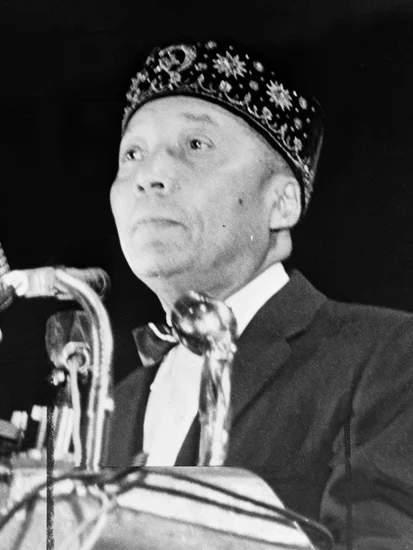
Elijah Muhammad, the influential leader of the Nation of Islam, passed away after decades of promoting Black nationalism and self-reliance. His teachings profoundly influenced African American religious and political thought.
Under his leadership, the Nation of Islam grew from a small sect to a major force in Black American communities. His protégé Malcolm X would later break with the organization and embrace orthodox Islam.
1954 – Methodist Missionary Joseph Beech Dies
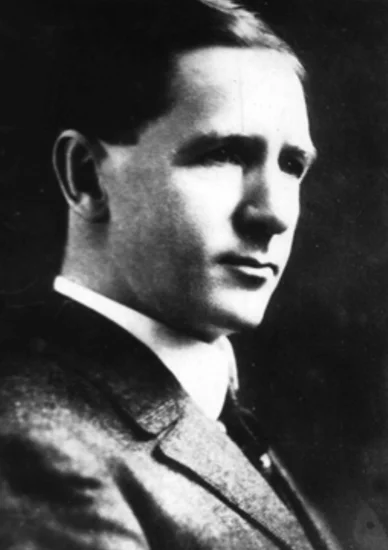
American Methodist missionary Joseph Beech died after a lifetime of educational and religious service. His work establishing schools and churches advanced Christian missions in developing nations.
Beech’s dedication to education and spiritual development improved countless lives across multiple continents. His missionary legacy inspired future generations of religious workers and humanitarian volunteers.
2008 – Civil Rights Judge Hans Raj Khanna Dies
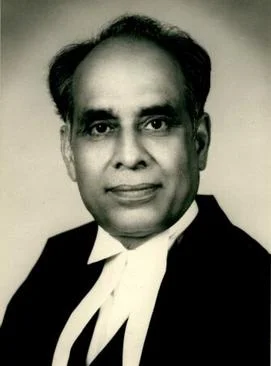
Indian Supreme Court Justice Hans Raj Khanna passed away, remembered as a stalwart defender of civil liberties and judicial independence. His courageous dissents protected constitutional rights during authoritarian periods.
Khanna’s principled stands against government overreach earned him international recognition as a judicial hero. His legacy continues to influence Indian jurisprudence and constitutional interpretation.
Business and Economic Events on February 25
1932 – Adolf Hitler Obtains German Citizenship
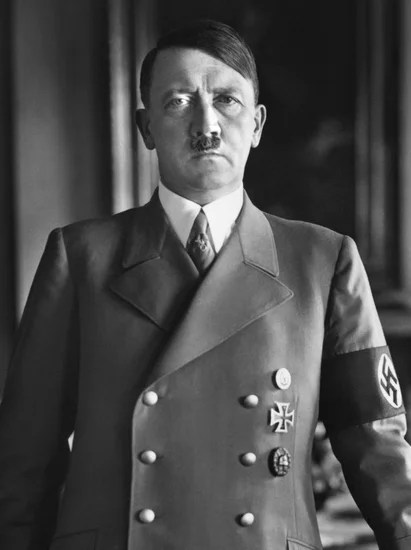
Adolf Hitler acquired German citizenship after seven years of statelessness when appointed as a Brunswick state official. This legal maneuver enabled him to run for Reichspräsident in upcoming elections.
Fellow Nazi Dietrich Klagges orchestrated the appointment to resolve Hitler’s constitutional eligibility issues. The citizenship grant proved crucial for Hitler’s political advancement and eventual rise to power.
2015 – Harve Bennett Dies, Hollywood Producer
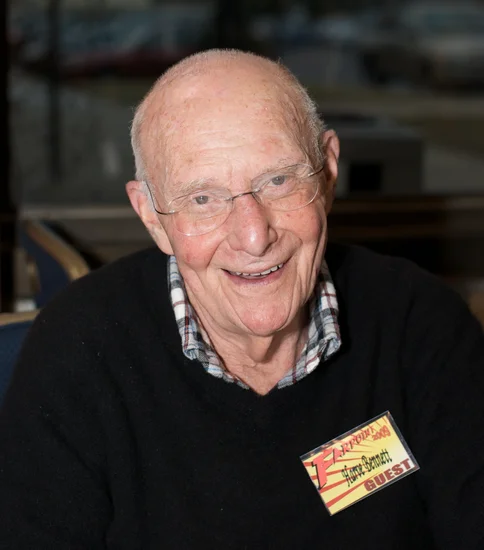
Television and film producer Harve Bennett passed away after a successful career creating popular entertainment franchises. His work on “Star Trek” films helped revitalize the science fiction series.
Bennett’s production expertise transformed struggling properties into profitable entertainment ventures. His business acumen and creative vision contributed significantly to Hollywood’s blockbuster filmmaking evolution.
1998 – Canadian Author W.O. Mitchell Dies

Beloved Canadian writer W.O. Mitchell died, leaving behind a literary legacy celebrating prairie life and culture. His novels and radio dramas captured the essence of Canadian rural experience.
Mitchell’s storytelling abilities brought Canadian literature to international audiences and inspired countless writers. His works remain essential reading for understanding Canada’s cultural identity and literary tradition.
Transportation and Infrastructure on February 25
1999 – Alitalia Flight 1553 Crashes in Genoa

Alitalia Flight 1553 crashed during landing at Genoa Cristoforo Colombo Airport, killing four people aboard. The accident highlighted ongoing challenges in aviation safety and airport approach procedures.
Investigators examined weather conditions and pilot error as potential contributing factors to the tragedy. The crash prompted reviews of landing protocols at airports with challenging geographical locations.
2009 – Turkish Airlines Flight 1951 Crashes in Amsterdam

Turkish Airlines Flight 1951 crashed during landing at Amsterdam Schiphol Airport due to faulty radio altimeter readings. Nine passengers and crew members, including all three pilots, died in the accident.
The crash investigation revealed critical flaws in aircraft instrumentation and crew training procedures. Aviation authorities implemented new safety protocols to prevent similar technological failures.
1928 – Yachtsman Paul Elvstrøm Born
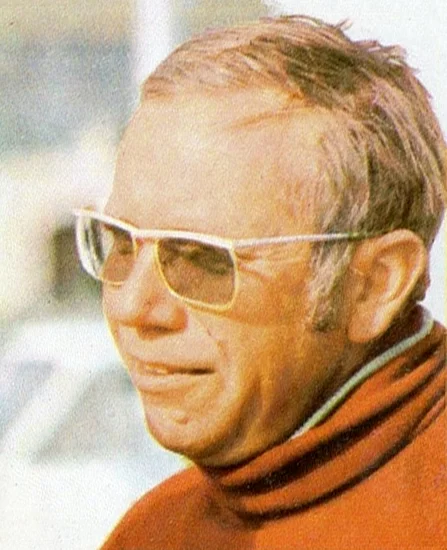
Danish sailing legend Paul Elvstrøm was born, beginning a journey toward Olympic greatness. His innovative techniques and competitive spirit would revolutionize competitive sailing.
Elvstrøm would become the first person to win gold medals in four consecutive Olympics. His sailing innovations and equipment designs advanced the sport’s technical development worldwide.
Sports and Recreation on February 25
1951 – First Pan American Games Open in Buenos Aires
Argentine President Juan Perón officially opened the inaugural Pan American Games in Buenos Aires. The multi-sport competition brought together athletes from across the Americas for peaceful competition.
The games established a new tradition of continental athletic competition and cultural exchange. Athletes from 21 nations participated in the historic sporting event that continues today.
1913 – Tennis Champion Bobby Riggs Born
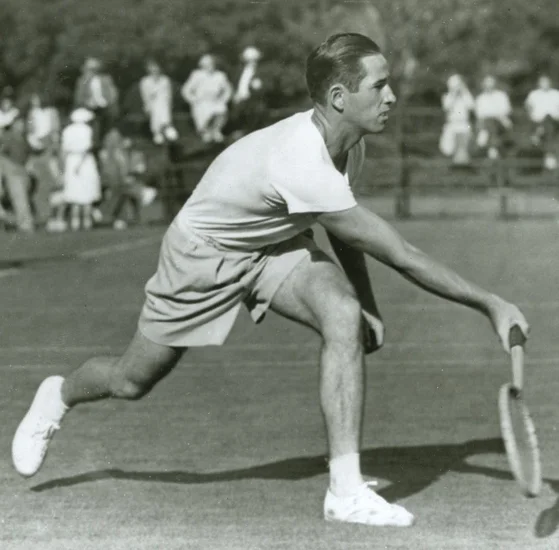
American tennis player Bobby Riggs was born in Los Angeles, destined to become a controversial sports figure. His competitive career would span both amateur and professional tennis eras.
Riggs achieved lasting fame through his “Battle of the Sexes” matches against female tennis champions. His promotional genius and on-court skills made him one of tennis’s most memorable personalities.
1938 – Olympic Runner Herb Elliott Born
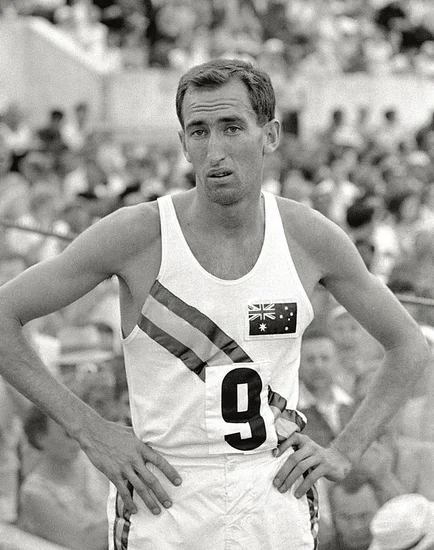
Australian middle-distance runner Herb Elliott entered the world, beginning a journey toward Olympic immortality. His innovative training methods would revolutionize distance running.
Elliott would dominate the 1500-meter event, never losing a race at that distance during his career. His Rome Olympics victory established him as one of track and field’s greatest champions.
1943 – Formula One Driver François Cevert Born

French racing driver François Cevert was born in Paris, destined for Formula One stardom. His natural talent and fearless driving style would make him a fan favorite.
Cevert’s partnership with the Tyrrell team produced numerous podium finishes and race victories. His tragic death at Watkins Glen cut short one of motorsport’s most promising careers.
1934 – Baseball Manager John McGraw Dies
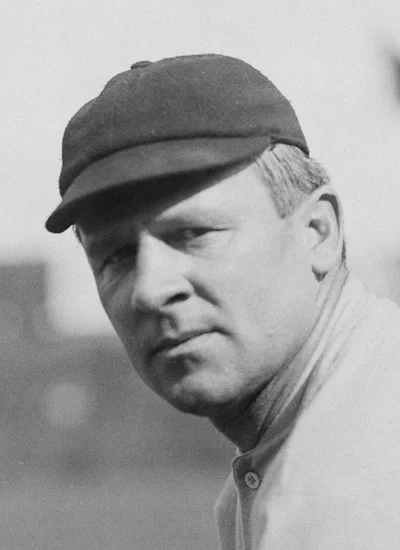
Legendary baseball manager John McGraw passed away after a career that transformed professional baseball. His innovative strategies and fierce competitiveness revolutionized the game’s tactical approach.
McGraw’s New York Giants dominated baseball for decades under his leadership, winning multiple World Series championships. His managerial philosophy influenced generations of baseball strategists and players.
Notable Births on February 25
1943 – Beatles Guitarist George Harrison Born

George Harrison entered the world in Liverpool, destined to become the “Quiet Beatle” and a musical innovator. His guitar work and songwriting contributions helped define the Beatles’ revolutionary sound.
Harrison’s interest in Indian music and spirituality brought Eastern influences to Western popular music. His solo career after the Beatles produced critically acclaimed albums exploring diverse musical traditions.
1901 – Marx Brothers Comedian Zeppo Marx Born
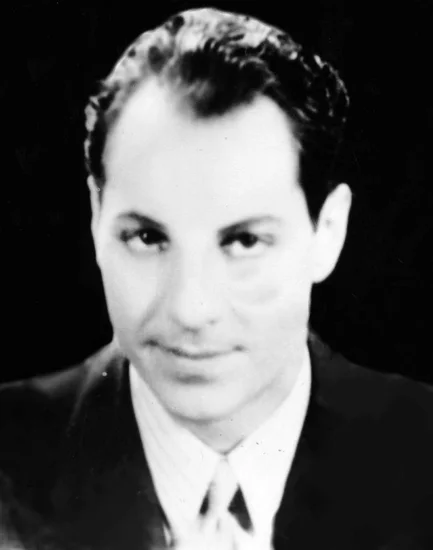
Zeppo Marx was born in New York City, completing the famous Marx Brothers comedy team. His straight-man roles provided perfect counterpoint to his brothers’ anarchic humor.
Though he left performing to become a theatrical agent, Zeppo’s contributions to early Marx Brothers films remain essential. His business acumen helped manage his brothers’ careers and Hollywood success.
1946 – Professional Wrestler Ric Flair Born
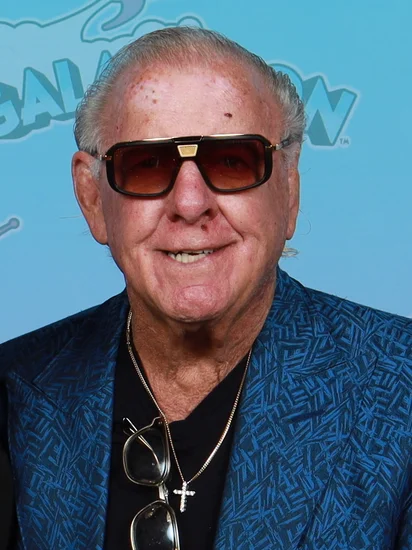
Wrestling legend Ric Flair was born in Memphis, Tennessee, beginning a journey toward sports entertainment immortality. His flamboyant personality and athletic ability would revolutionize professional wrestling.
Flair’s “Nature Boy” persona and championship reigns made him wrestling’s most recognizable figure. His influence on sports entertainment extends far beyond his in-ring accomplishments.
1953 – Spanish Prime Minister José María Aznar Born

José María Aznar was born in Madrid, destined to become one of Spain’s most influential political leaders. His conservative policies would shape Spanish politics for decades.
Aznar served as Prime Minister from 1996 to 2004, implementing economic reforms and strengthening international relationships. His leadership during the Madrid train bombings tested his crisis management abilities.
1976 – Actress Rashida Jones Born

Rashida Jones was born in Los Angeles to entertainment industry parents, beginning her journey toward acting success. Her mixed heritage and privileged background provided unique perspectives for her career.
Jones achieved recognition through television comedies and independent films showcasing her versatility. Her writing and producing work demonstrates commitment to diverse storytelling in Hollywood.
Notable Deaths on February 25
2001 – Cricket Legend Don Bradman Dies
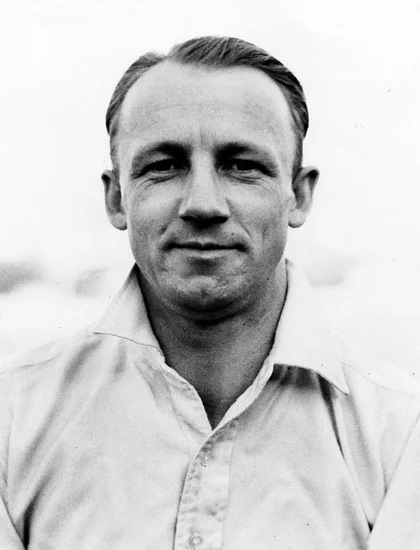
Australian cricket icon Don Bradman passed away, ending the career of sport’s greatest statistical achiever. His batting average of 99.94 remains the most remarkable record in international cricket.
Bradman’s dominance during the 1930s and 1940s elevated cricket’s global profile and inspired countless players. His technical mastery and consistency established the gold standard for batting excellence.
1906 – Russian Composer Anton Arensky Dies
Anton Arensky, renowned Russian composer and pianist, died in Finland after a distinguished musical career. His compositions bridged the gap between classical Russian traditions and modern musical innovations.
Arensky’s chamber music and piano works remain staples of the classical repertoire. His teaching at the Moscow Conservatory influenced a generation of Russian composers and musicians.
1914 – Illustrator John Tenniel Dies

English illustrator John Tenniel passed away, leaving behind iconic artwork that defined Victorian literature. His illustrations for “Alice’s Adventures in Wonderland” remain instantly recognizable worldwide.
Tenniel’s political cartoons for Punch magazine shaped public opinion during Britain’s imperial era. His artistic legacy continues to influence illustrators and graphic artists across multiple generations.
2017 – Actor Bill Paxton Dies
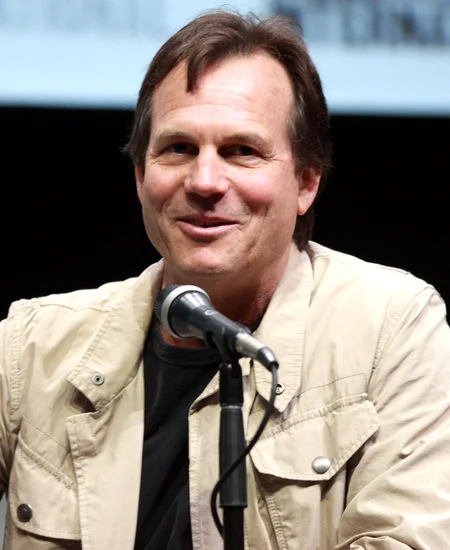
American actor and filmmaker Bill Paxton died unexpectedly, ending a versatile career spanning multiple decades. His performances in blockbuster films and television dramas earned critical acclaim and audience appreciation.
Paxton’s ability to portray both heroic and villainous characters showcased his remarkable range. His directorial work demonstrated artistic ambitions beyond his successful acting career.
Holidays and Observances on February 25
People Power Day in Philippines

The Philippines commemorates People Power Day, celebrating the 1986 peaceful revolution that toppled Ferdinand Marcos. This national holiday honors the Filipino people’s commitment to democratic values and nonviolent resistance.
The observance includes ceremonies at EDSA Shrine and reflections on democratic governance. Educational programs teach younger generations about the revolution’s historical significance and ongoing relevance.
National Day in Kuwait
Kuwait celebrates its National Day, marking the nation’s independence and constitutional monarchy. The holiday recognizes Kuwait’s sovereignty and the ruling Al-Sabah family’s leadership role.
Festivities include parades, cultural performances, and displays of national pride throughout the country. The celebration reinforces Kuwaiti identity and unity in the face of regional challenges.
Memorial Day for Victims of Communist Dictatorships in Hungary
Hungary observes Memorial Day for the Victims of Communist Dictatorships, remembering those who suffered under Soviet-imposed rule. The solemn occasion honors political prisoners, deportees, and execution victims.
Educational programs examine the communist era’s human rights violations and political repression. The memorial serves as a reminder of democracy’s fragility and the importance of protecting civil liberties.
